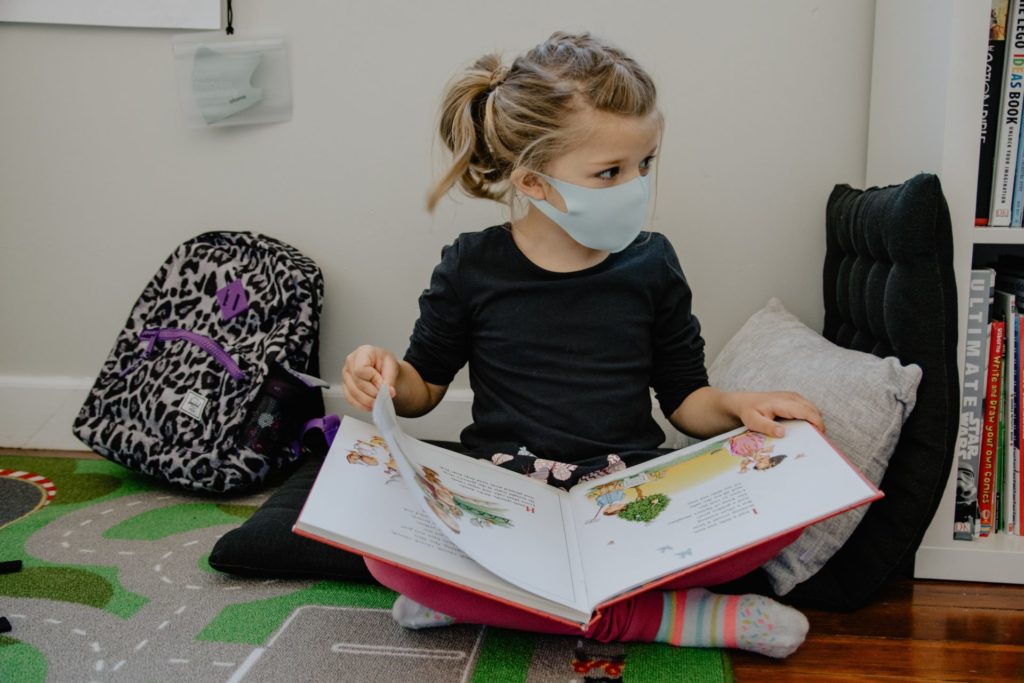Stricter measures begin this week to control the spread of the coronavirus amid a fourth wave, and Belgium’s minister of health has called for mandatory face masks for children who are age nine or older.
But the country’s paediatrician task force is not wholly in favour of such a measure, according to Nieuwsblad.
“There is very little data on the pros and cons of masks in children in primary schools,” said paediatrician Tyl Jonckheer.
As coronavirus figures continue to rise, experts from the Covid-19 Management Strategy Expert Group (GEMS) are currently working on advice in which mandatory masking will play a large role.
Minister Vandenbroucke indicated on Friday that he’s in favour of mandatory masks “everywhere inside where you can not keep enough distance” for anyone aged nine or older.
But both Minister of Education Ben Weyts (N-VA) and Minister of Youth Benjamin Dalle (CD&V) oppose it.
According to Dalle, the impact of making masks compulsory for young children is underestimated, because “at that age they are very much occupied with improving their speech.”
Tyl Jonckheer, paediatrician and coordinator of the paediatric taskforce, said there are sufficient arguments to be cautious with masking children.
“It’s a hindrance. The facial expression is partly lost and that makes communication and language learning more difficult.”
According to Jonckheer, there are also indications that at that age it could lead to behavioural disorders, and a French study shows that children get headaches faster when they breathe through masks.
It’s not a reason for alarm, says Jonckheer, but it’s still good to be “a little careful.”
Related News
- Coronavirus: Education Minister for Wallonia-Brussels Federation against facemask mandate for primary schools
- Vandenbroucke calls for masks for nine-year-olds
When it comes to teenagers and adults, there is little doubt of their effectiveness, and multiple studies proving it helps curb the spread of the virus, Jonckheer said.
But for young children, it’s a different story: “There is hardly any scientific data about the pros and cons of masks for children.”
He says there are certain situations where it makes sense for young children to wear masks, such as when visiting vulnerable grandparents in spaces where it’s not possible to keep a sufficient physical distance.
But wearing a mask all day long in a school setting is a different matter.
Jonckheer also wasn’t wholly in favour of closing schools or extending holidays, saying “that cannot be justified at all unless measures are taken in society at large first.”
“One must first intervene there first and only afterwards, if necessary, in the schools,” Jonckheer said.

